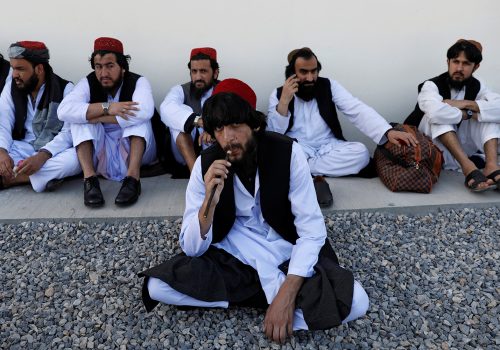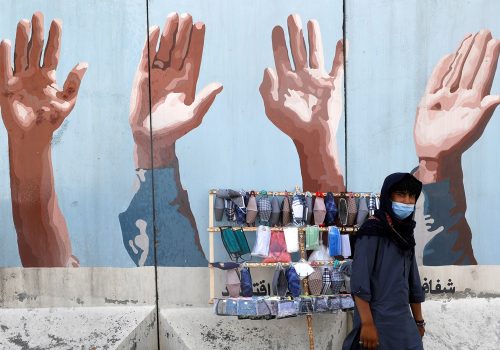Strategies for reforming Afghanistan’s illicit networks
Executive summary
This report explores illicit networks in Afghanistan in the context of peacebuilding, democratic consolidation, and enhancing state capacity. Existing literature on the topic is sparse. While the 1990s saw study of the subject matter as tangential to international arms and drug trafficking policies, this period laid the foundation for renewed interest on the issue partially catalyzed by the 2001 US-led invasion. The 2008 global financial crisis shifted this lens toward one of countering the financing of terrorism strategies, corruption, and money laundering. The current day reflects a broadening of how illicit networks are analyzed beyond sector-specific policies; that is, the subject matter today encompasses more of the sectors that make it profitable, rather than focusing only on the most relevant component at a given time. Indeed, it is an internationalized issue, encompassing the smuggling of different goods and involving individuals of varying motivations and capacities within and without Afghanistan.
Illicit networks can be broadly understood at three main levels: hyper-local, national, and international. At a hyper-local level, illicit networks represent a series of interpersonal relationships that facilitate the exchange of goods and compensation (taking many forms) beyond the reach of central law enforcement or political authority. Nationally, illicit networks comprise regional and countrywide patronage, criminal, and insurgent networks that organize and profiteer from the hyper-local relationships on a macro level. Internationally, actors with reach outside of the country move illicitly gained goods such as poppy, talc, methamphetamine, minerals, and others, as well as people via human trafficking, into trading hubs in Iran, Pakistan, and the Gulf for export into international markets. They then use poorly regulated financial institutions throughout the world (notably, Western and Gulf banking systems) to store funds, some of which make their way back to Afghanistan (though this phenomenon is particularly difficult to track).
This report outlines several specific policy recommendations that will be necessary to combat the illicit networks in a manner that supports the durability of the ongoing peace process in Afghanistan and the continued consolidation of its fragile democratic institutions. These recommendations include the following:
For Afghanistan:
- Provide a path for illicit actors into the formal economy
- Generate political will and support
- Establish high-level Afghan support for countering illicit trafficking and upholding the rule of law
- Implement enhanced border management
- Expand the negotiating table to include more localized narratives
- Strengthen and internationalize counter-threat finance strategies
For the United States:
- Support a comprehensive economic settlement
- Ensure future interoperability between Afghan and US security forces
For regional stakeholders:
- Provide access to global markets to enhance regional trade integration
- Cut off regional and international components of networks to reduce viability and profitability via neighborhood watchdogs, in conjunction with the United States

The South Asia Center is the hub for the Atlantic Council’s analysis of the political, social, geographical, and cultural diversity of the region. At the intersection of South Asia and its geopolitics, SAC cultivates dialogue to shape policy and forge ties between the region and the global community.
Related content
Image: Trucks wait to cross the Afghanistan-Iran border in Zaranj, Afghanistan, May 10, 2011. The crossing is part of a busy trade route between Central Asia and the Middle East. (U.S. Marine Corps photo by Sgt. Mallory S. VanderSchans/Released)


